Dumping toxic waste on foodland and roads or piled in communities or dumped in unlined pits near homes and communities is how Alberta’s “best-in-class” “world-class” Charter violating, lying spying AER lets it happen:
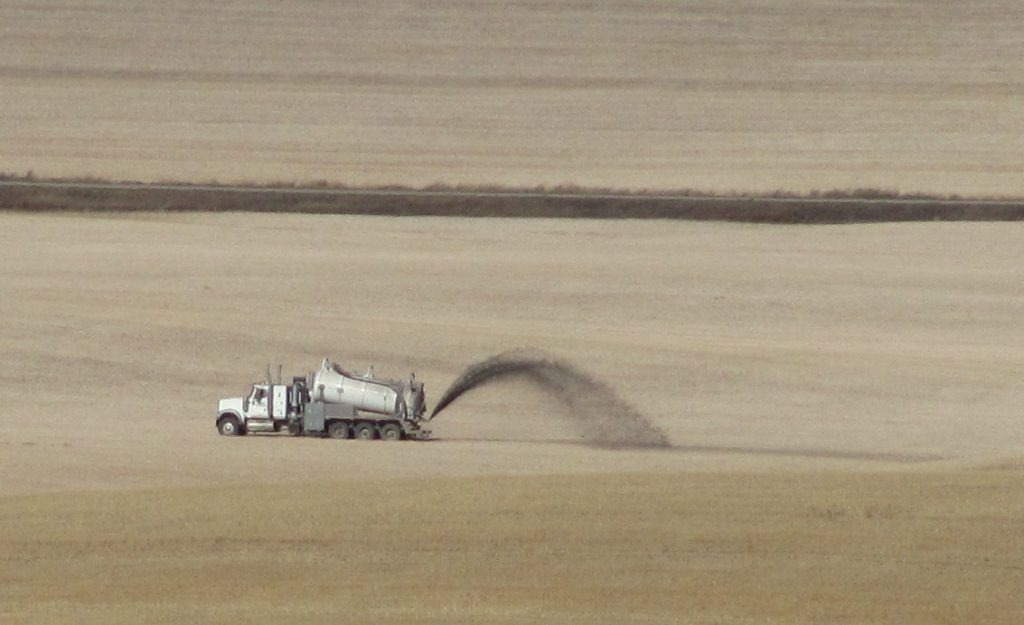
2011 Encana waste dumping just east of Rosebud, Alberta in heavy wind blowing towards the community as residents were leaving church
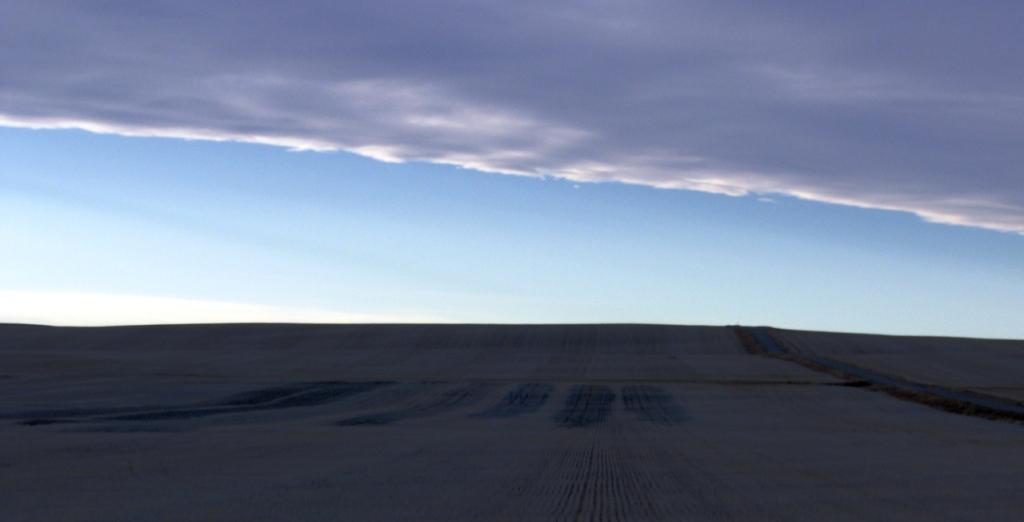
2011 Encana waste dumping strips on food land near Rosebud Alberta, just east of where the company illegally fractured into the community’s drinking water aquifers in 2004
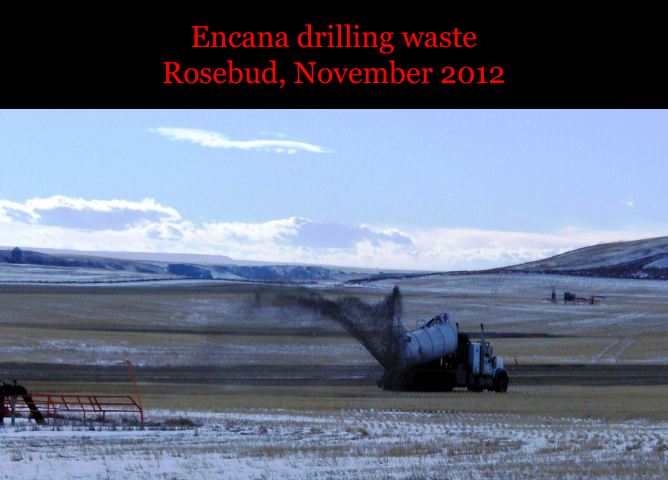
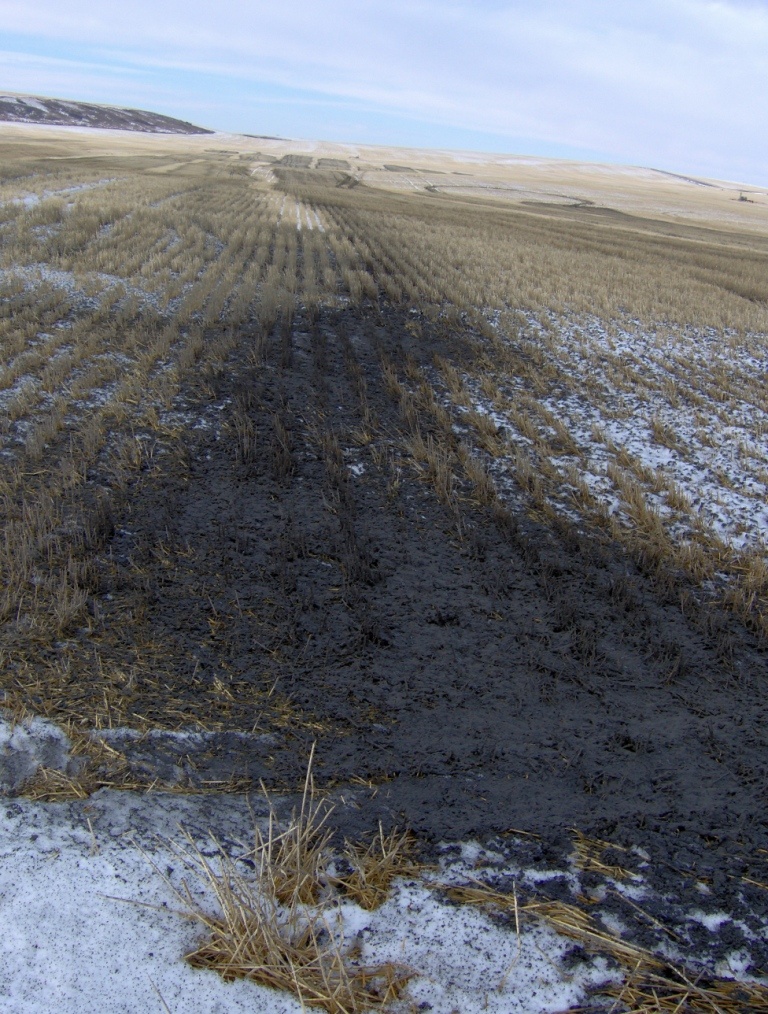
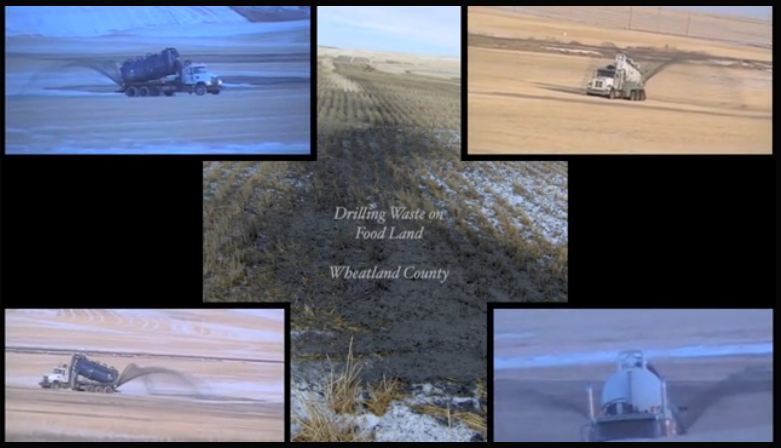
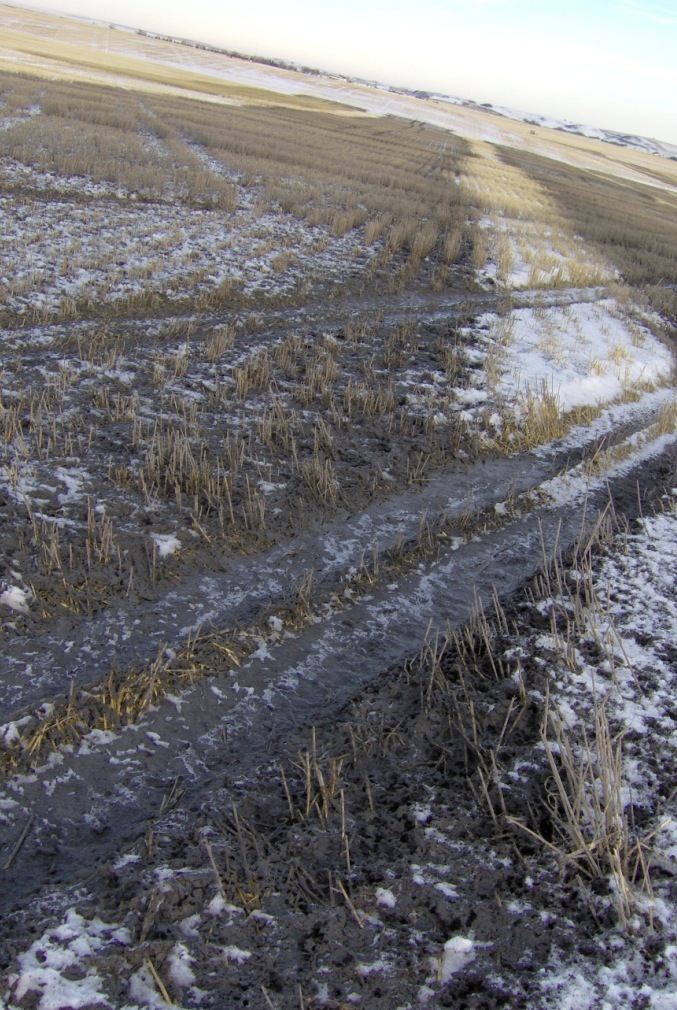
Above photos: 2012 Encana dumping waste on foodland at Rosebud, Alberta in same location as in 2011.
What is the cumulative contamination impact to soil, air and water?
Below, oilfield waste dumped on foodland in the Lochend, NW of Calgary:

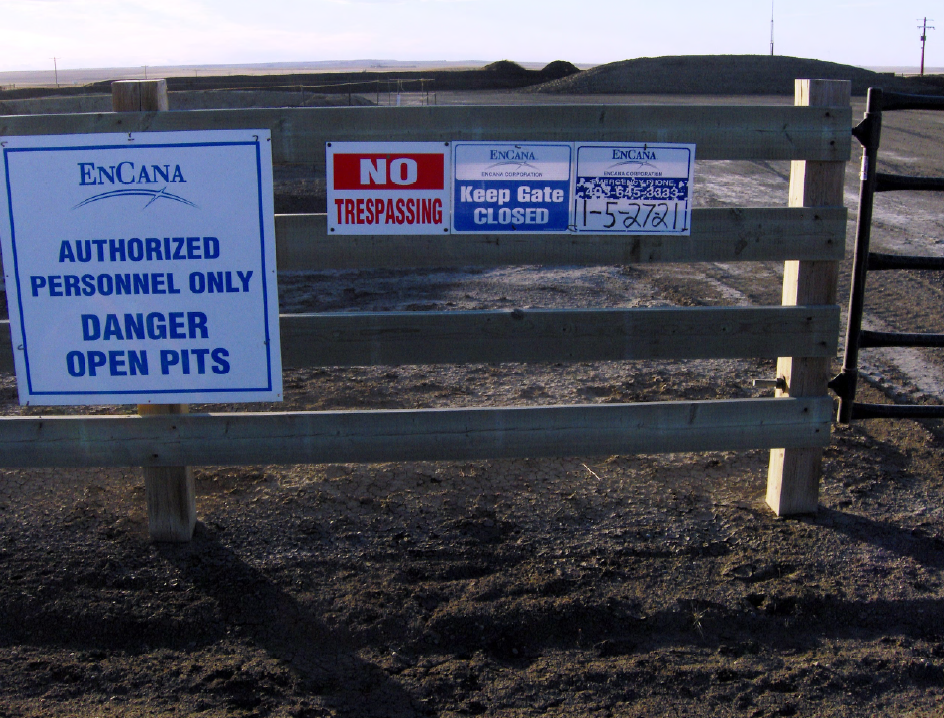
Encana’s unlined waste pits SW of Rosebud, Alberta
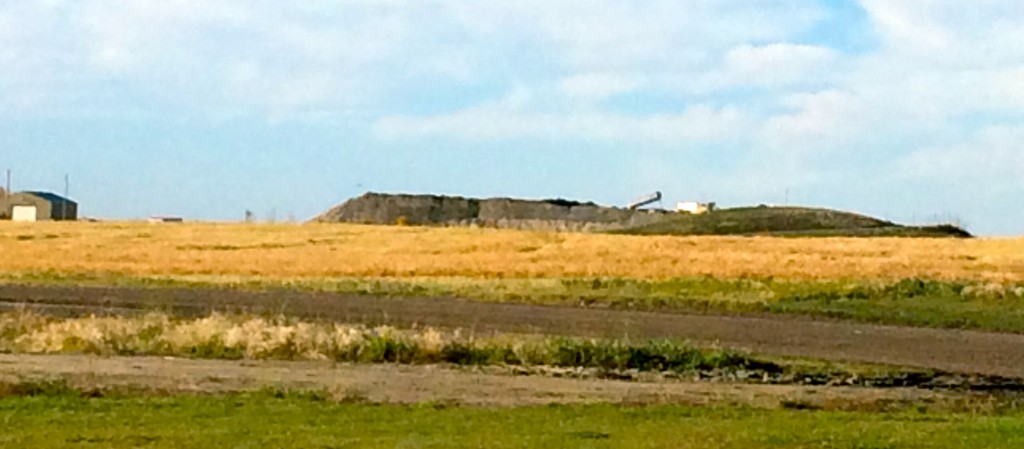
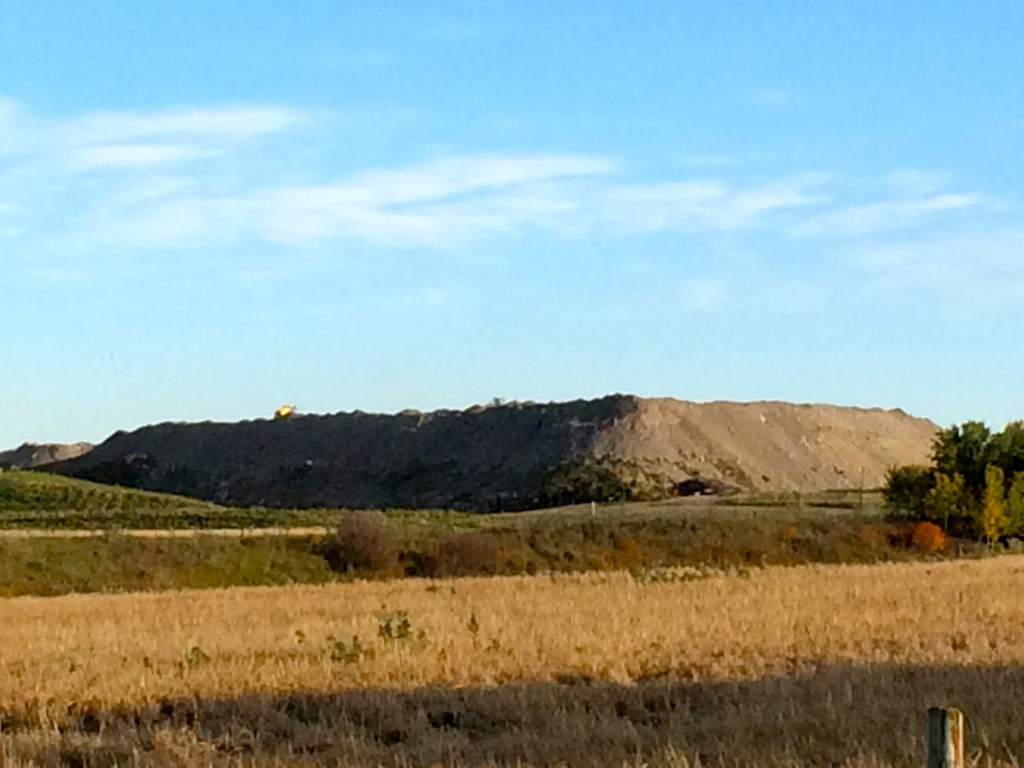
Oil industry waste pile, Didsbury Alberta. What is the community breathing when the wild Alberta winds blow?
And companies also use roads to get rid of their toxic waste, below examples in Rocky View County, near Calgary:
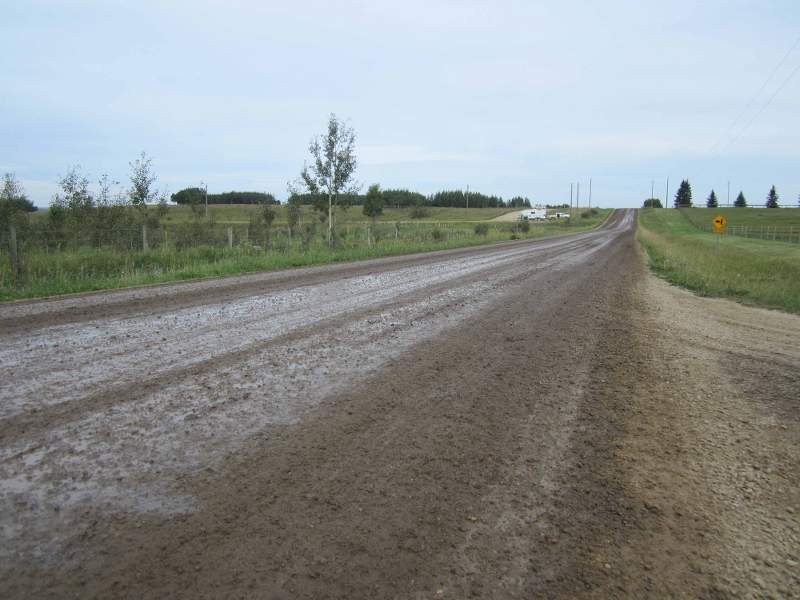
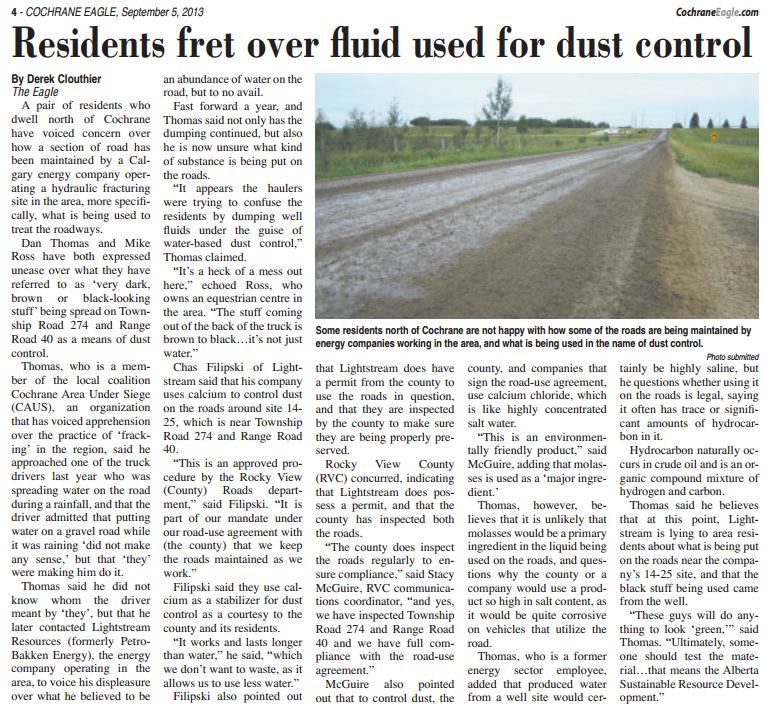
Companies need dust control in winter?
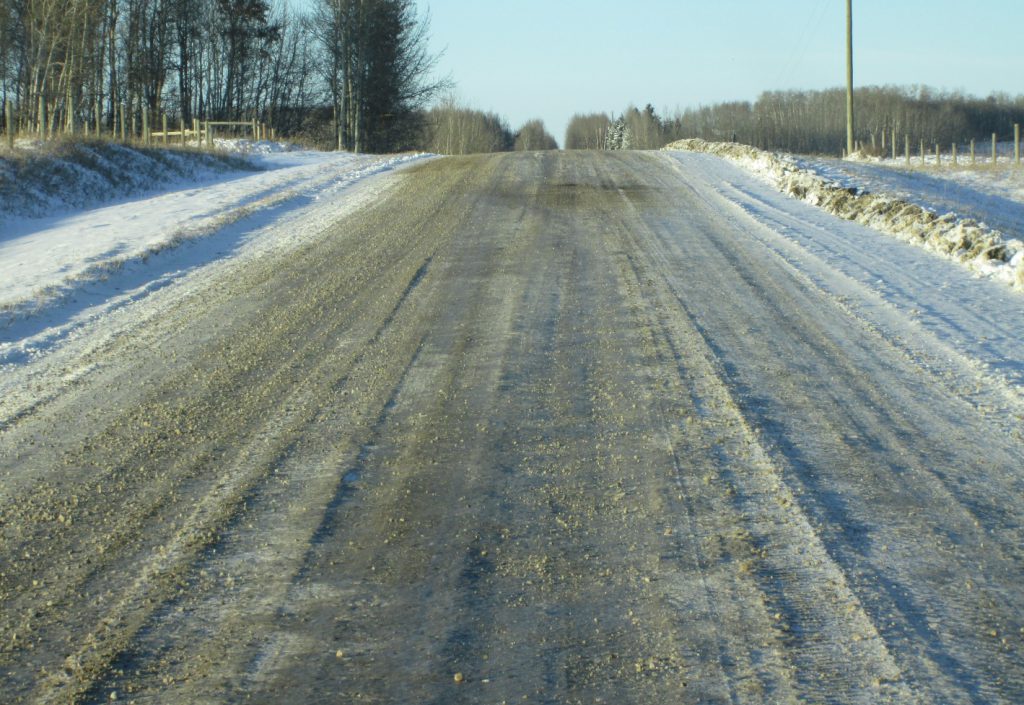
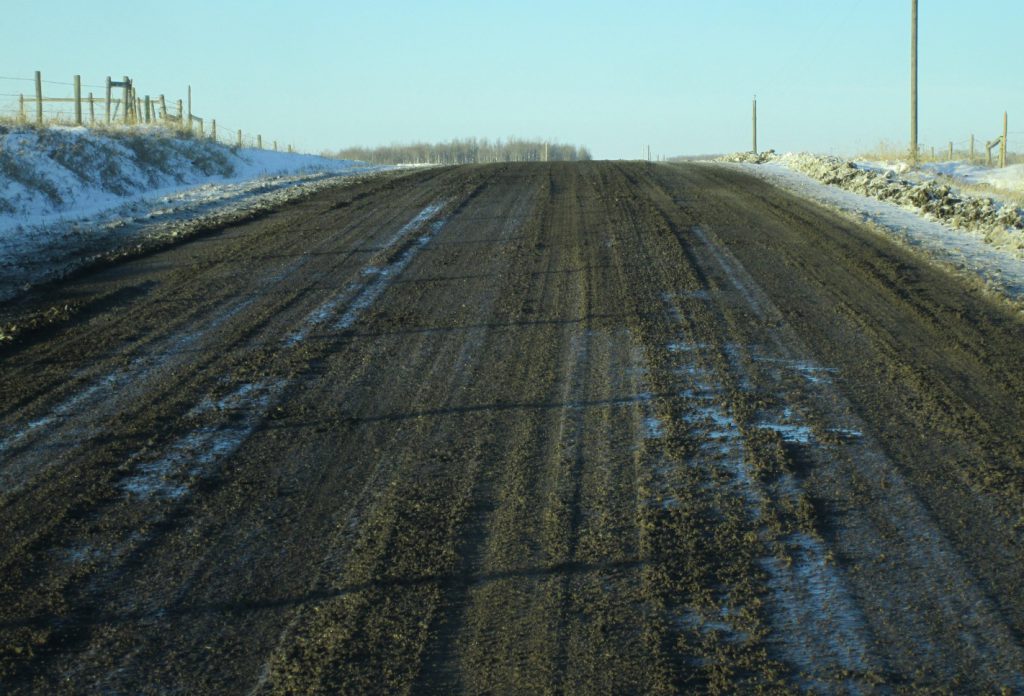
Paved roads need dust control?
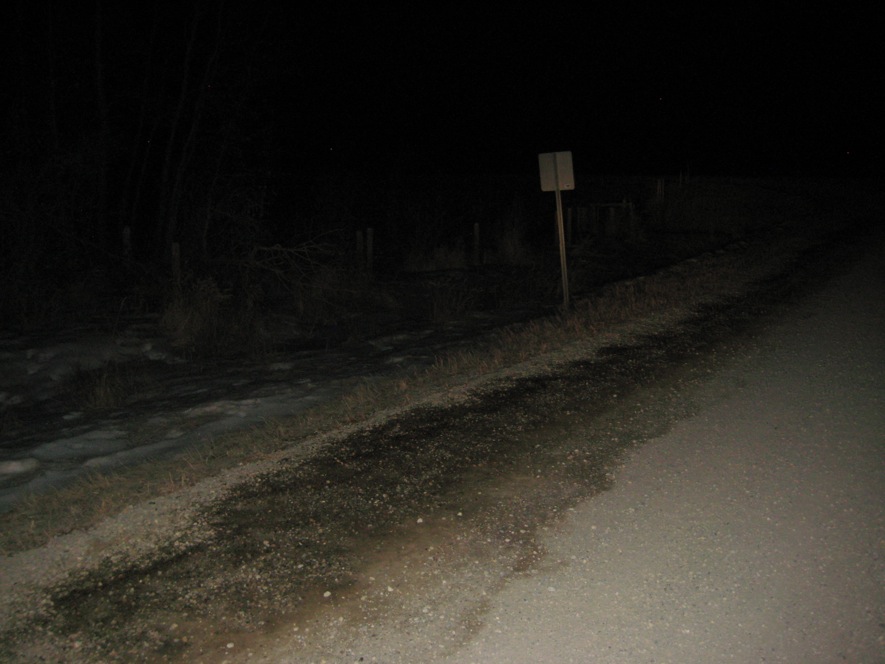
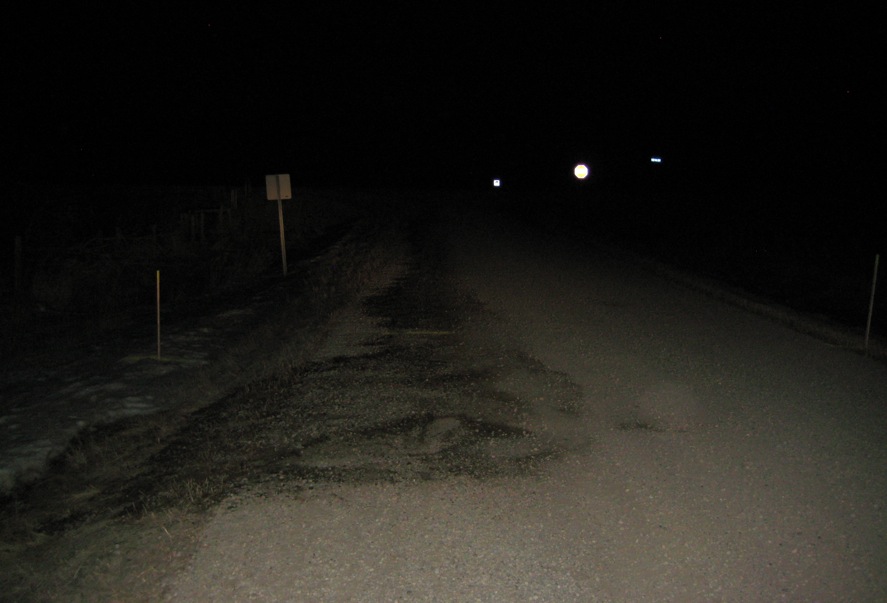
What toxic chemicals are you accumulating in your garage or on/near your driveway where your children play?
Pennsylvania: Consent order bars landfill that takes fracking waste from sending discharge to BVMA by Gideon Bradshaw, Observer-Reporter, Aug 22, 2019
An agreement signed on Wednesday will prevent a Rostraver Township landfill that accepts drill cuttings and other fracking waste from piping contaminated water to the Belle Vernon Municipal Authority for the next year. [Just one of many landfills piping waste into Publicly Owned Treatment Works, POTWs!]
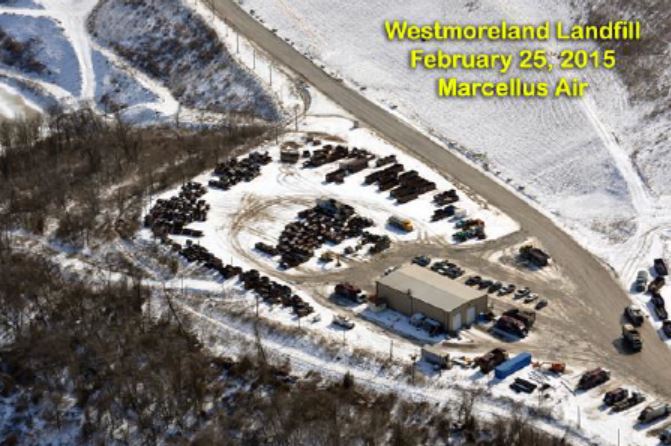
The consent order formally extends the terms of an injunction a judge granted in May that barred the Westmoreland Sanitary Landfill from sending leachate for treatment to the authority – whose Fayette County plant discharges treated water into the Monongahela River – for three months.
District attorneys Gene Vittone and Richard Bower of Washington and Fayette counties, respectively, sought that court order, which they said was necessary to prevent water contaminated with chemicals, including carcinogens, from entering drinking water.
Kit Pettit, the landfill’s attorney, said his client plans to take additional measures to address officials’ concerns while the new agreement is in effect.
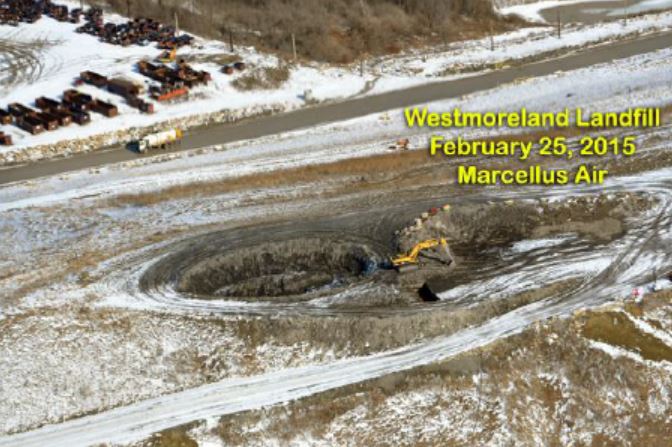
“It will take up to 12 months to obtain the necessary permits, equipment and technology, and to construct the pre-treatment facility on site to ensure that its leachate is of the parameters and characteristics for proper disposal,” Pettit said. “They are working closely with the Pennsylvania Department of Environmental Protection with respect to this matter, and there’s ongoing and routine communication to ensure that the landfill remains compliant.” [It was DEP who wanted to work a deal so that this would continue unabated!]
Pettit added that the landfill is “currently collecting and transporting the leachate to other disposal facilities for treatment.” …
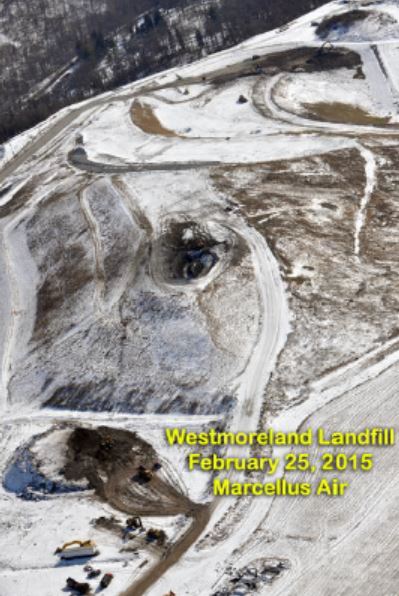
The pact bars the landfill from “sending, or passing through, any water, waste, wastewater, discharge, contaminants, effluent, pollutants, leachate, sludge, biological processes, or any other substances” to the authority without the authority’s written permission.
The language is similar to the phrasing of a temporary injunction that Leskinen granted May 17 in response to a petition by the DAs.
Two days earlier, the municipal authority board voted on advice from legal counsel to terminate a contract with Tervita, the Canadian company that owns the landfill, effective June 1. Officials had determined that the landfill was sending them 100,000 to 300,000 gallons of contaminated water a day – two to six times the amount the authority was allowed to take – according to Bower’s and Vittone’s injunction request.
“An engineering firm hired by the authority determined that the excess volume of contaminated water flowing into the municipal authority for treatment rendered treatment of all waste water ineffective and consequently the authority was acting simply as a pass-through for the contaminated water on its way to the Monngahela River,” a water source for many towns in the region, the DAs added.
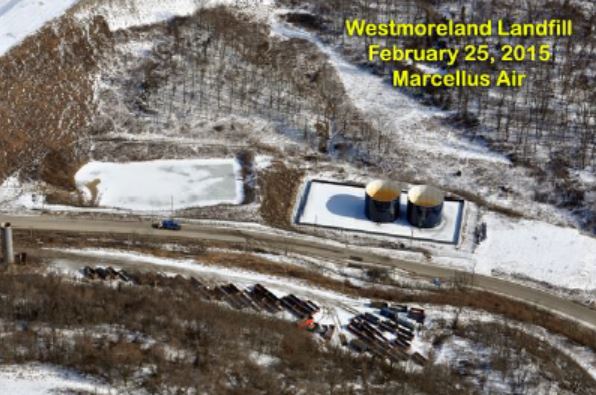
Along with normal waste, the landfill accepts “oil and gas waste that contains oil, diesel fuel, phenols and other substances” that seep into rainwater at the site that was sent for treatment, according to their filing.
The runoff from the landfill was identified as the culprit behind levels of certain contaminants that violated the standards of the authority’s permit. Officials first noted the problems in spring 2018.
Requests for help from DEP yielded “no solution,” authority Superintendent Guy Kruppa said in a sworn affidavit. [If authorities get no help from regulators, imagine what harmed landowners must endure!]
Judge’s order continues restrictions on Rostraver landfill by Stephen Huba, TRIBLIVE, Aug 21, 2019
A consent order signed by a Fayette County judge Wednesday prohibits the discharge of harmful effluent into the Monongahela River by a landfill and a treatment facility.
The action by Common Pleas Judge Steve Leskinen continues a 90-day order he issued in May at the request of Fayette County District Attorney Richard Bower and Washington County District Attorney Eugene Vittone.
The district attorneys sought the order over concerns that leachate from Westmoreland Sanitary Landfill in Rostraver was reaching the river without being treated properly by the Belle Vernon Municipal Authority’s treatment plant.
The order, which is effective through Aug. 21, 2020, prohibits the landfill from discharging effluent into the Mon except indirectly through publicly-owned treatment works other than the Belle Vernon Municipal Authority.
The order also prohibits the landfill from sending any other “water, wastewater, discharge, contaminants, effluent, pollutants, leachate, sludge, biological processes or any other substances” to the municipal authority without its prior written consent.
The municipal authority had accepted leachate — liquid that comes in contact with waste — from the landfill via pipeline but became concerned it could no longer treat the leachate and stay in compliance with its National Pollutant Discharge Elimination System, or NPDES, permit.
In May, the municipal authority board voted to terminate its contract with the landfill, effective June 1, and no longer accept the leachate after testing revealed it contained potential carcinogens.
The sources of the contaminants were drill cuttings and mud from unconventional drilling operations in southwestern Pennsylvania, according to the original complaint.
“These cuttings are buried within the landfill. When rain occurs, water will leach through the cuttings and become contaminated with the chemicals from the cuttings,” the complaint said.
Wednesday’s order also prohibits the municipal authority from accepting, or discharging into the Mon any effluent that is in violation of its NPDES permit.
The landfill has shut off the pipeline and has been trucking the leachate to treatment facilities in Ohio since May 20.
Landfill spokeswoman Ro Rozier said the landfill plans to spend the coming year working with the state Department of Environmental Protection and “investing capital in equipment and technology to build an on-site leachate pre-treatment facility. Components including advanced filtration and an evaporator will be part of that investment.”
Rozier said the landfill “supports higher (Environmental Protection Agency) standards for water quality and is committed to being part of the solution.”
Bower and Vittone have referred the matter to the Environmental Crimes Section of the state Attorney General’s Office.
The consent order was signed by Bower, municipal authority attorney John M. Smith, landfill attorney Kit Pettit and Chief Deputy Attorney General Rebecca Franz of the Environmental Crimes Section.
Refer also to:
Oilpatch Waste Disposal Company, Tervita, Poisoning and Sickening residents of Unity Saskatchewan? Shame on Brad Wall’s Polluting Petro State for downplaying the many that were sickened, claiming a “strong odor” had “in some cases caused personal discomfort.”
New York signs law prohibiting fracking, and oil, natural gas waste in city; Alberta & other jurisdictions allow it dumped in landfills, on roads, leases, near communities and water ways (perhaps in them, who’s checking?). NORM increasing because of unconventional oil & gas, “has become a much more significant health, safety and environmental issue”

